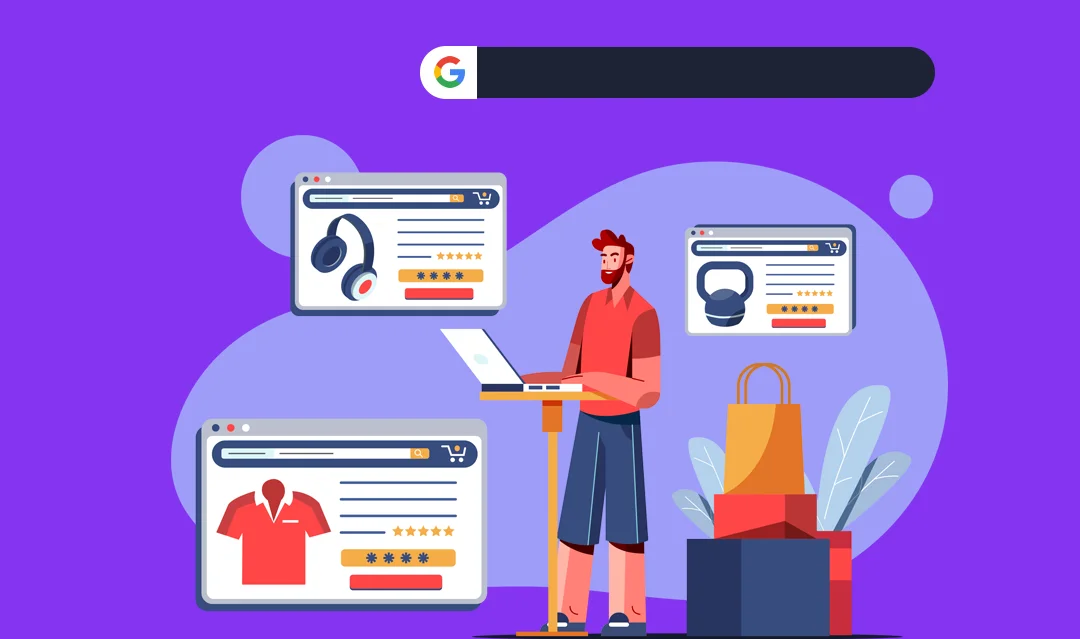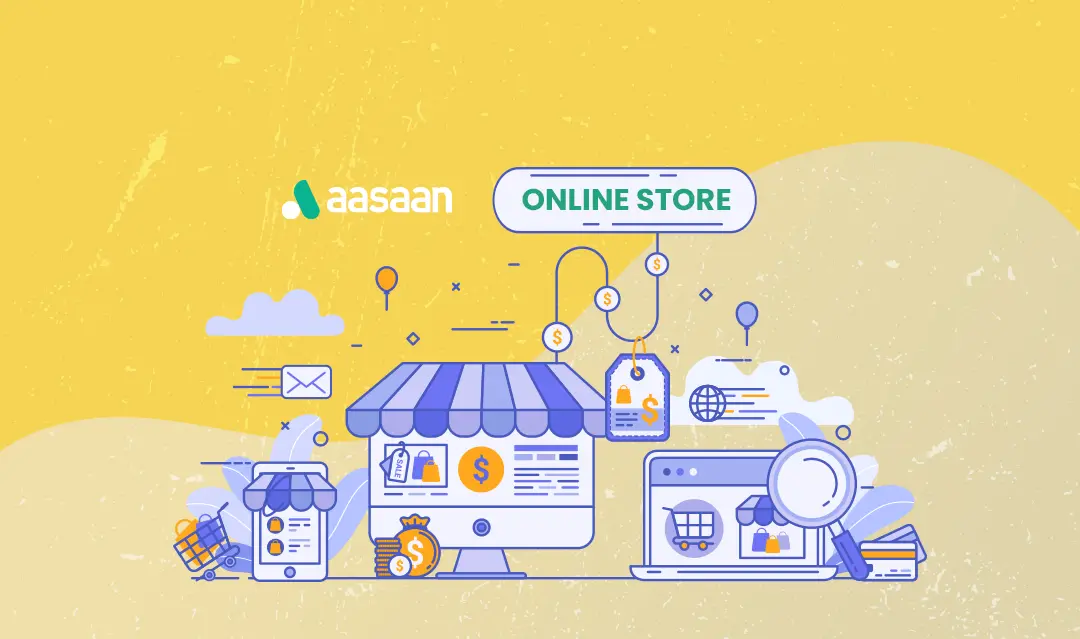
Is Ecommerce Legit? Exploring the Reality of Online Commerce
Considering setting foot in the online commerce world?
You might be questioning the legitimacy of ecommerce as your future success hinges on the credibility and reliability of the online business landscape.
The digital commerce realm offers a wide array of opportunities. However, like all business models, it comes with its unique set of challenges and risks.
According to research completed by eMarketer and Statista, online retail sales will reach $6.51 trillion by 2023, with ecommerce websites taking up 22.3% of total retail sales.
In this discussion, let’s delve into the question “Is Ecommerce Legit?” and investigate the reality of online commerce, to determine how it can potentially shape your business future.
Understanding Ecommerce

So, what exactly is Ecommerce? In simple terms, Ecommerce refers to the buying and selling of goods or services using the internet. It’s all about conducting business online.
There are different types of Ecommerce models based on the nature of transactions:
- B2B (Business-to-Business): Transactions between businesses, such as between a manufacturer and a wholesaler.
- B2C (Business-to-Consumer): Transactions between businesses and consumers, like when you buy a book from an online store.
- C2C (Consumer-to-Consumer): Transactions between consumers, often facilitated by a third party. eBay is a good example of this.
- C2B (Consumer-to-Business): Transactions where individuals offer products or services to companies. Freelance platforms operate on this model.
The Ecommerce industry is dominated by major players like Amazon and eBay, which have set the standard for online shopping with their vast product range, user-friendly interfaces, and efficient delivery systems.
The Legitimacy of Ecommerce
Ecommerce is not just a legitimate business model, but also a highly successful one. It has given birth to some of the most successful businesses in the world.
For instance, Amazon started as an online bookstore and has now become a multinational tech company offering everything from retail goods to digital streaming. Similarly, eBay started as a platform for consumer-to-consumer sales and has grown into a global ecommerce giant.
Discussion on the Reliability of Ecommerce
Ecommerce has proven to be a reliable business model. It offers convenience for consumers, who can shop from the comfort of their homes, and flexibility for businesses, which can operate 24/7 and reach a global audience.
However, like any business model, it comes with its own set of challenges, such as managing customer trust, ensuring secure online transactions, and dealing with intense competition.
But with the right strategies and a customer-centric approach, these challenges can be effectively managed.
Evaluating Ecommerce Platforms

Choosing the right Ecommerce platform is a crucial step in setting up an online business. There are several popular platforms available, each with its own set of features and benefits.
For instance, Aasaan is a comprehensive Ecommerce platform that allows you to set up an online store, manage products, and handle sales and inventory. It’s known for its user-friendly interface and extensive customization options.
Wix, on the other hand, is a website builder that also offers Ecommerce capabilities. It’s praised for its intuitive drag-and-drop interface and a wide range of design templates.
But how can you tell if an Ecommerce platform is legit? Here are a few things to consider:
- Reputation: Look for platforms that are well-known and widely used in the industry.
- Security: A legitimate platform will prioritize security, offering features like SSL certificates to protect sensitive data.
- Customer Support: Reliable platforms provide robust customer support to help users navigate any issues.
- User Reviews: Check out reviews and testimonials from other users to gauge the platform’s reliability and performance.
How to Tell if an Ecommerce Site is Legit
As a consumer, it’s also important to know how to identify legitimate Ecommerce sites. Here are some tips:
- Secure Site: Look for “https” in the URL, which indicates that the site uses encryption to protect your data.
- Contact Information: Legitimate sites will have clear contact information, including a physical address and phone number.
- Return Policy: A detailed and fair return policy is a good sign of a legitimate Ecommerce site.
- Customer Reviews: Check out reviews and ratings for the site and its products.
However, beware of red flags like unrealistically low prices, poor website design, and lack of company information. These could indicate a scam or unreliable site.
The Benefits and Challenges of Ecommerce

Ecommerce offers numerous benefits for both businesses and consumers. For customers, it provides the convenience of shopping from anywhere at any time.
For businesses, it offers a global reach, allowing them to sell their products or services to customers around the world.
Moreover, Ecommerce can lead to lower operational costs compared to traditional retail. Without the need for a physical storefront, businesses can save on expenses like rent, utilities, and in-store staff.
However, starting an Ecommerce business also comes with its own set of challenges.
These include building a user-friendly website, managing online marketing and SEO, ensuring secure payment options, and handling customer service in a virtual environment.
Read More: Online Business vs Offline Business: Which Is More Beneficial?
Legal Aspects of Ecommerce
Ecommerce is governed by a variety of laws and regulations. These cover areas such as data privacy, copyright protection, and consumer rights.
Data privacy is a crucial aspect of Ecommerce. Businesses must ensure they comply with laws like the GDPR in Europe, which governs how personal data should be handled.
Copyright laws protect the original content on your website, while consumer protection laws ensure that customers are treated fairly and honestly.
It’s important for Ecommerce businesses to understand these laws to operate legally and ethically.
Ecommerce Scams and How to Avoid Them
Unfortunately, like any industry, Ecommerce is not immune to scams. These can range from fake websites that mimic legitimate ones, to scams that trick customers into revealing personal information.
Ecommerce businesses can protect their customers by implementing secure payment systems, regularly updating their website security, and educating customers about safe online shopping practices.
Making Money with Ecommerce
Ecommerce offers a variety of ways to earn money. You can start your own online store, sell products on established platforms like Amazon or eBay, or even dropship products from suppliers.
There are countless success stories in the world of Ecommerce.
For instance, Jeff Bezos started Amazon in his garage and turned it into one of the world’s most successful companies.
However, these successes often come with challenges, such as competition, customer trust issues, and the need for technical knowledge.
The Future of Ecommerce
The future of Ecommerce looks promising. With the continued growth of internet usage worldwide, the Ecommerce market is expected to keep expanding.
Emerging trends include the rise of mobile commerce, personalized shopping experiences, and the integration of AI and AR technologies.
Technology will undoubtedly play a crucial role in shaping the future of Ecommerce.
From AI-powered recommendation engines to AR-enabled virtual fitting rooms, technology will continue to enhance the online shopping experience and open up new possibilities for Ecommerce businesses.
Conclusion
As we’ve explored, Ecommerce is not just a legitimate business model, but also a highly successful and promising one.
It’s a phenomenon that has transformed the way we shop and do business, offering unprecedented opportunities for businesses of all sizes to reach a global audience.
Ecommerce provides convenience for consumers and flexibility for businesses. It’s a model that has given birth to some of the most successful businesses in the world, from Amazon to eBay.
However, like any business model, it comes with its own set of challenges, such as managing customer trust, ensuring secure online transactions, and dealing with intense competition.
Looking to the future, the potential of Ecommerce is vast. With emerging trends like mobile commerce, personalized shopping experiences, and the integration of AI and AR technologies, the future of Ecommerce is exciting and full of possibilities.
In conclusion, whether you’re an aspiring entrepreneur, a seasoned business owner, or a consumer, Ecommerce is a field that offers immense opportunities and is shaping the future of business.
As we navigate this digital marketplace, one thing is clear: Ecommerce is here to stay, and it’s changing the world as we know it.
FAQ’s:
1. Is ecommerce a legit way to make money?
Yes, Ecommerce is a legitimate way to make money. It involves selling products or services online, either through your own website or established platforms like Amazon and eBay.
2. Is this ecommerce site legit?
Determining the legitimacy of an Ecommerce site involves checking for secure payment systems, clear contact information, customer reviews, and a fair return policy.
3. Is it good to buy an ecommerce business?
Buying an Ecommerce business can be a good investment if the business has a proven track record of profitability, a strong customer base, and a viable business model.
4. Is there risk with ecommerce?
Like any business model, Ecommerce comes with risks, including competition, customer trust issues, and the need for technical knowledge. However, these risks can be managed with the right strategies.
5. Is ecommerce worth it?
Ecommerce can be worth it due to its potential for high returns and the growing trend of online shopping. However, it requires time, effort, and investment to build and manage an Ecommerce business.








